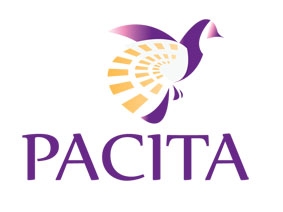On this page you find more information related to the European project PACITA (2011-2015). In the course of this project, more project results and deliverables will be added to this page.
Since April 1 2011, the European project PACITA has been launched. PACITA stands for Parliaments and Civil Society in Technology Assessment and is a four year project financed under the 7th Seventh Framework Programme (FP7). After the EUROPTA project (Participatory Methods in Technology Assessment and Technology Policy, 1997-2000) and the TAMI project (Technology assessment in Europe; between method and impact, 2002-2003), PACITA is the next large-scale cross-European project that focuses on focuses on sharing knowledge, experience and reflection concerning parliamentary TA-practices.
The main objective of PACITA is to distribute capacity and enhance the institutional foundation for knowledge-based policy-making on issues involving science, technology and innovation, mainly based upon the practices in Parliamentary Technology Assessment (PTA). PTA supports the processes of democratic policy-making on issues involving science, technology and innovation, by providing comprehensive insight into knowledge on opportunities and consequences, by facilitating democratic processes of debate and clarification, and by formulating policy options.
More specifically and by means of 9 work packages, PACITA will
• document these PTA practices,
• describe schemes for using them nationally and at European level,
• establish a set of training schemes for users and practitioners,
• establish a Web Portal to European PTA,
• expertise,
• create a debate on such practices in countries, which do not have them formally established,
• involve experts, societal actors and politicians in European debates on these practices,
• provide three large example-projects on expert-based praxis, stakeholder involvement and citizen consultation,
• support this with a strong dissemination strategy towards the policy-makers, the scientific community, media and countries, which can favor from the mobilization and mutual learning created by the Action Plan, and
• have an independent evaluator monitor the progress and results.
The PACITA consortium is coordinated by the Danish board of Technology and consists of 15 partners from national/regional parliamentary offices for science and technology, science academies, research institutions, Universities, civil society organisations. 8 partners have formalized parliamentary TA-expertise; 7 partners do not have such expertise.IST is the task leader of work package 5 (European Future Panel on Public Health Genomics) and has coresponsibilities in other work packages.
Contact
If you wish more information on PACITA, please contact Johan Evers.
Marian Deblonde and Katrien D'haeseleer collaborate in the realization of IST tasks in relation to PACITA.
Project planning
• Kick-off meeting: May 30 - June 1, 2011 in Copenhagen
• Consortium meeting: September 7-9, 2011 in Brussels
• Parallell workshops (‘TA practices in Europe’ and ‘Making Cross European TA’): February 6 & 7 2012 in Oslo
• Consortium meeting: February 8 & 9 2012 in Oslo
• First TA practitioners’ training: April 25 - 27 2012 in Lisbon
• First European parliamentary TA debate: June 18 2012 Copenhagen
• Consortium meeting: June 12-13 juni 2012 in Copenhagen
• First TA Summer school : June 25 - 28 in Liège
Available publications
VOLTA:
first edition of European TA magazine with special issue on ‘Energy and public dialogue’



